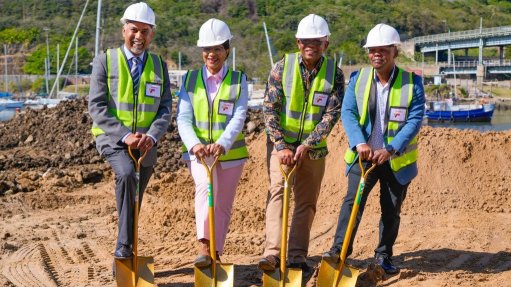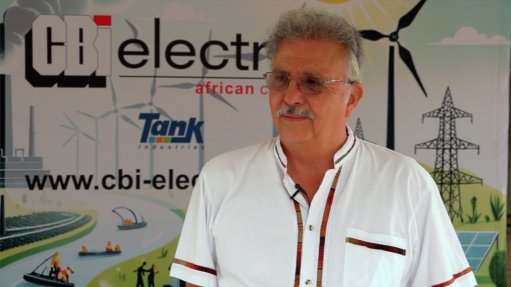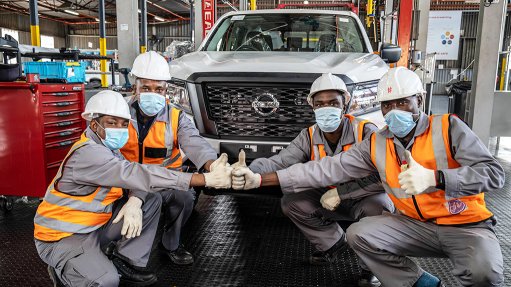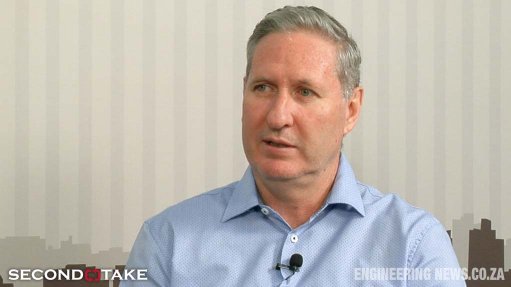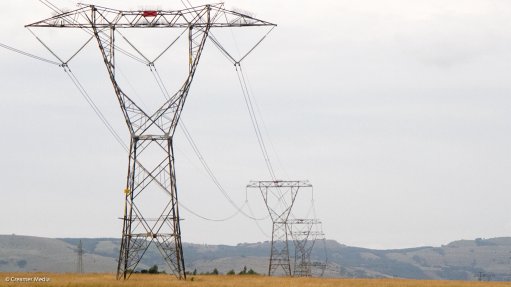South Africa must develop solutions to address specific sanitation issues
Various technologies, from ventilated improved pit toilets to decentralised wastewater systems, offer potential solutions to some of the country’s sanitation challenges, but these technologies must be tailored to each community’s unique needs, particularly in informal settlements, the South African Institution of Civil Engineering (Saice) says.
For example, gravity-driven sewerage systems require sufficient installation density to prevent blockages. Dispersed rural homesteads often lack this density, making extensive pumping systems unfeasible. Therefore, there is also a need for standalone systems that do not rely heavily on water.
“Each community is different. We need solutions that address their specific challenges and resources,” says Saice water engineering division VP Zweli Mahlangu.
Historically, the government’s reliance on ventilated improved pit toilets has been effective, but the surge in population and urbanisation requires sustainable alternatives, he says.
Sanitation transcends engineering and requires a holistic approach that encompasses critical social issues.
“People need to understand that sanitation is an ongoing challenge everywhere in the world. Addressing it effectively demands a concerted effort from all stakeholders in this country,” emphasises Saice treasurer and former chairperson Abri Vermeulen.
Globally, sanitation remains a significant crisis, with three-billion people lacking access to safe facilities. In South Africa, access has improved from 50% in 1994 to 84% today. Yet, the rapid population growth, from 36-million in 1994 to 62-million in 2021, continues to challenge the provision of adequate sanitation.
While significant progress has been made in South Africa’s sanitation sector, much work remains. The challenge is not only technical but also social, requiring ongoing engagement and education.
“Access to sanitation infrastructure and services is important, but the question arises whether there is enough water to flush everything down,” says Vermeulen.
In regions with sufficient water supply, managing sludge, sewage and wastewater is critical. However, many sewer systems face blockages, breakages, pump failures and lack of affordable emptying services.
“Some sanitation programmes have been hampered by the appointment of inexperienced contractors, leading to compromised quality and project abandonment. Contractors often compromise on quality, leading to poorly built toilets that frequently fail,” Mahlangu notes.
This issue exacerbates the sanitation crisis, especially in rural and underfunded schools.
The condition of pit toilets in schools is a critical issue, which often poses significant health risks to students and teaching staff, he emphasises.
“Saice's water engineering division stresses the urgency of addressing this issue, noting that ensuring safe and clean sanitation in schools is critical for the health and safety of our children and the teachers themselves.
“Despite some successful projects, many have been compromised by full pits and improper waste disposal, including building rubble and vehicle parts.”
The tragic deaths of children in poorly built pit toilets have brought this issue to national attention, and urgent, immediate action is needed to replace them with safer options, he says.
Additionally, it is important to raise public awareness and educate communities on proper sanitation practices.
“Community involvement and education are essential, and understanding sanitation and system maintenance is important,” Vermeulen says.
“By empowering communities with knowledge, we can foster long-term change and improve public health,” Mahlangu concurs.
Article Enquiry
Email Article
Save Article
Feedback
To advertise email advertising@creamermedia.co.za or click here
Comments
Press Office
Announcements
What's On
Subscribe to improve your user experience...
Option 1 (equivalent of R125 a month):
Receive a weekly copy of Creamer Media's Engineering News & Mining Weekly magazine
(print copy for those in South Africa and e-magazine for those outside of South Africa)
Receive daily email newsletters
Access to full search results
Access archive of magazine back copies
Access to Projects in Progress
Access to ONE Research Report of your choice in PDF format
Option 2 (equivalent of R375 a month):
All benefits from Option 1
PLUS
Access to Creamer Media's Research Channel Africa for ALL Research Reports, in PDF format, on various industrial and mining sectors
including Electricity; Water; Energy Transition; Hydrogen; Roads, Rail and Ports; Coal; Gold; Platinum; Battery Metals; etc.
Already a subscriber?
Forgotten your password?
Receive weekly copy of Creamer Media's Engineering News & Mining Weekly magazine (print copy for those in South Africa and e-magazine for those outside of South Africa)
➕
Recieve daily email newsletters
➕
Access to full search results
➕
Access archive of magazine back copies
➕
Access to Projects in Progress
➕
Access to ONE Research Report of your choice in PDF format
RESEARCH CHANNEL AFRICA
R4500 (equivalent of R375 a month)
SUBSCRIBEAll benefits from Option 1
➕
Access to Creamer Media's Research Channel Africa for ALL Research Reports on various industrial and mining sectors, in PDF format, including on:
Electricity
➕
Water
➕
Energy Transition
➕
Hydrogen
➕
Roads, Rail and Ports
➕
Coal
➕
Gold
➕
Platinum
➕
Battery Metals
➕
etc.
Receive all benefits from Option 1 or Option 2 delivered to numerous people at your company
➕
Multiple User names and Passwords for simultaneous log-ins
➕
Intranet integration access to all in your organisation






